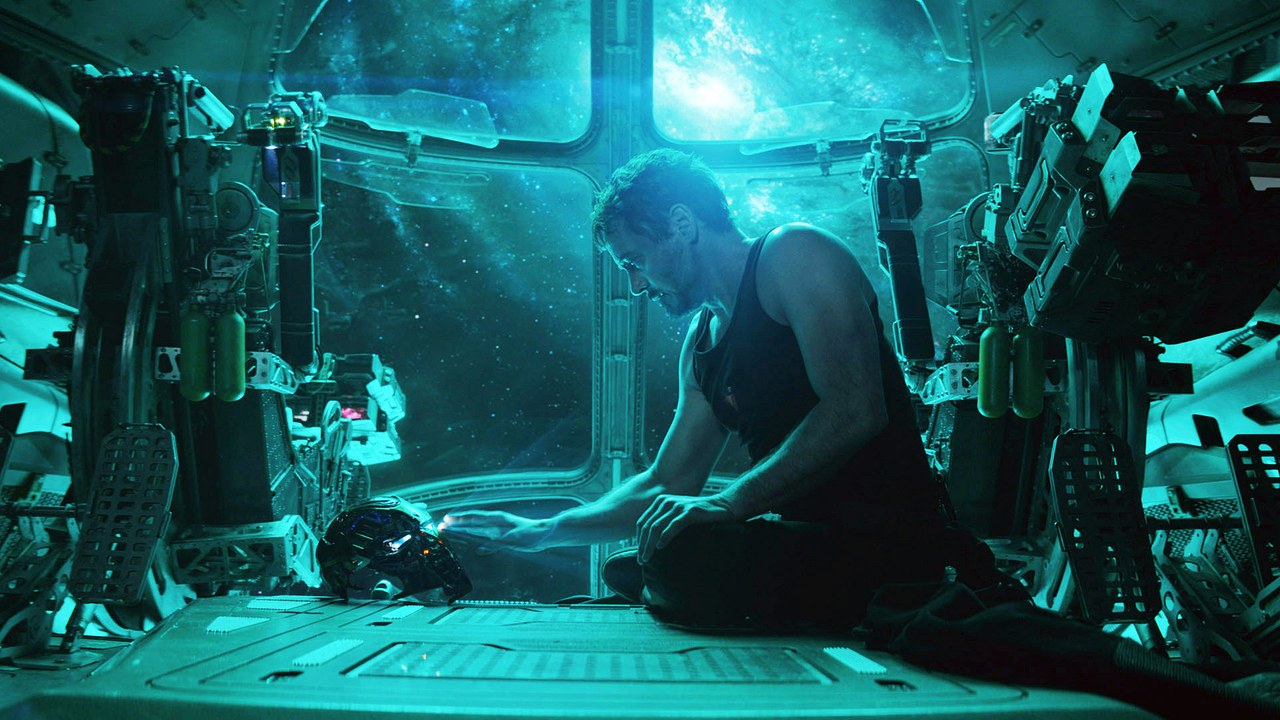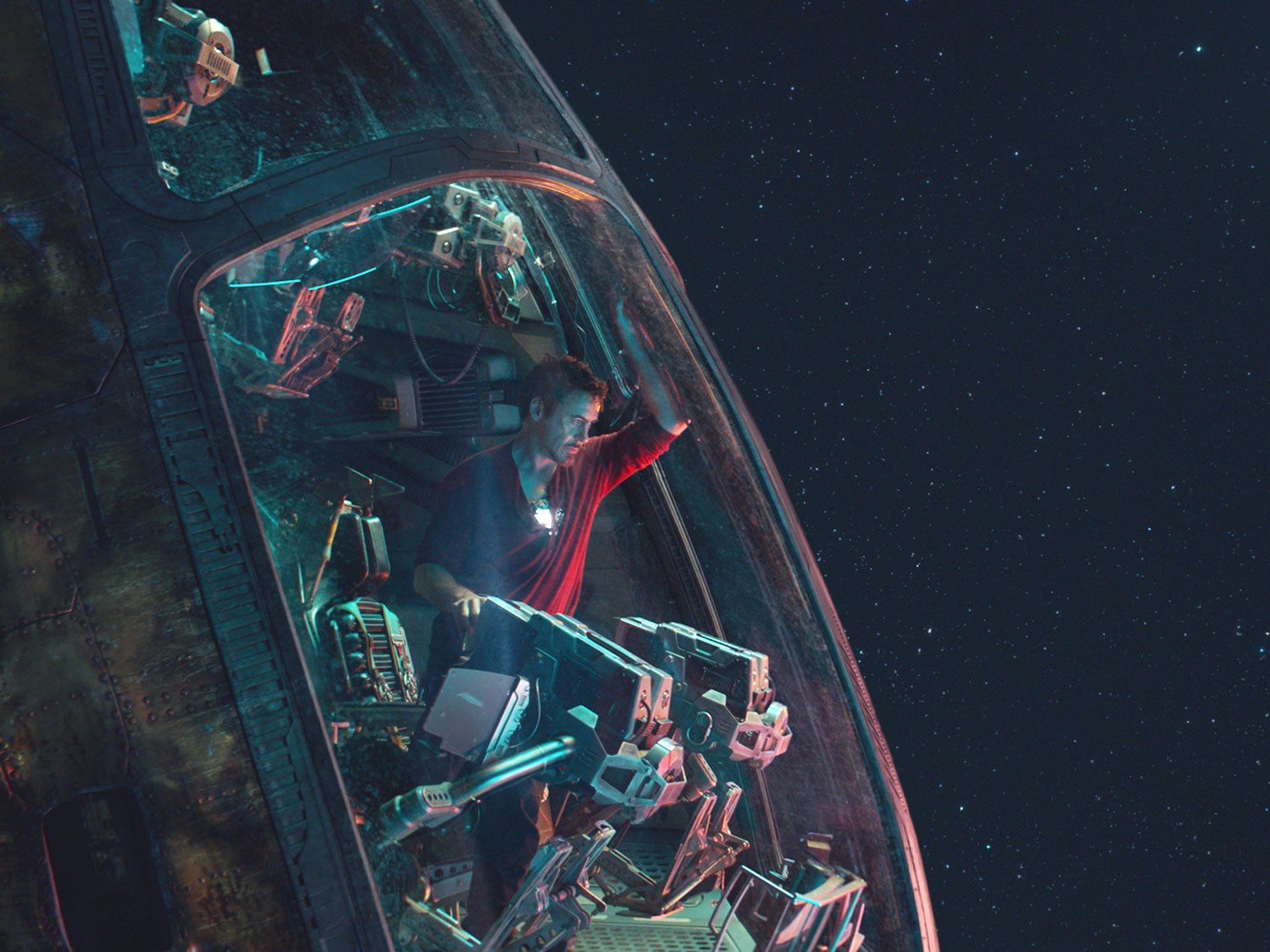This last weekend Pixar released their newest film, Toy Story 4 which is being released 9 years after the last Toy Story film. Pixar has another huge hit on their…
This last weekend Pixar released their newest film, Toy Story 4 which is being released 9 years after the last Toy Story film. Pixar has another huge hit on their hands as by all accounts the film opened with over $100 million in the domestic box office. Toy Story 4 is also a critical darling so far sitting at 98% on Rotten Tomatoes. This is somewhat surprising because many, myself included among this number, were skeptical of a fourth Toy Story movie when Toy Story 3 so beautifully concluded the story of Andy and his toys.
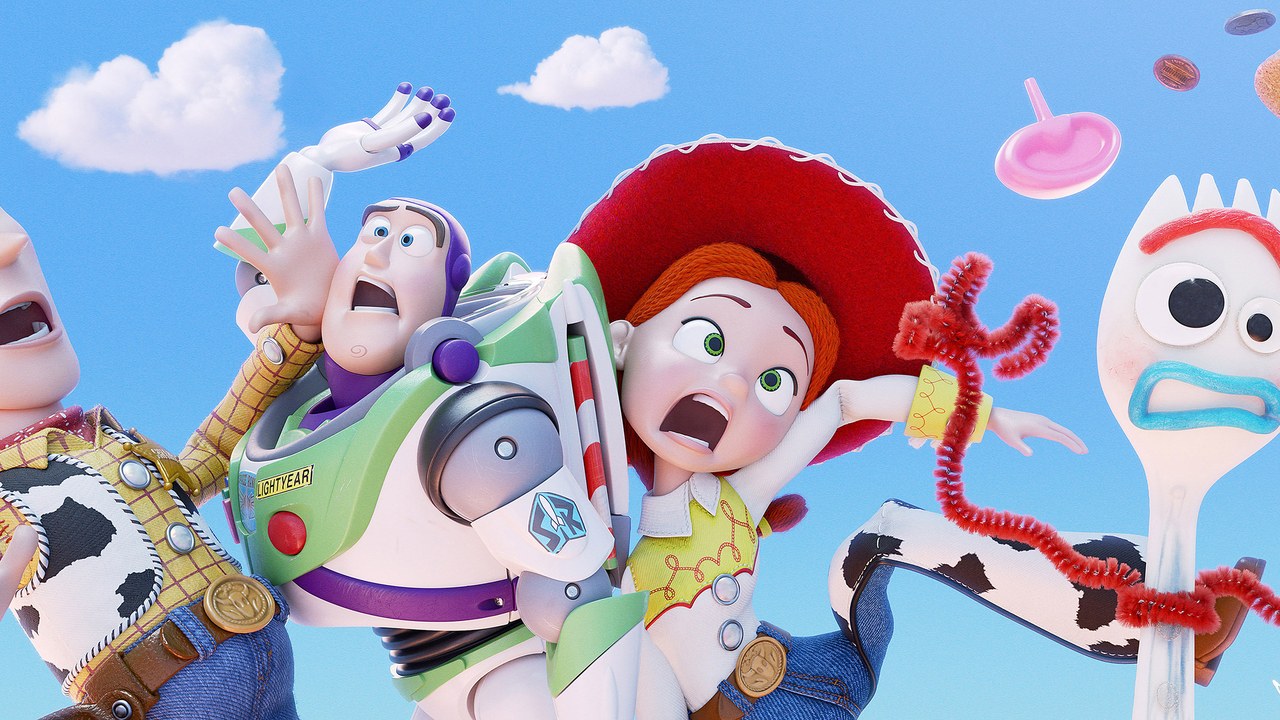
I was very worried that Toy Story 4 would ruin the near perfectness of the original films. Before the fourth was announced I ranked the Toy Story trilogy as one of the best trilogy of films of all time and in my opinion ending on the highest note. I grew up with the Toy Story franchise. The actor voicing Andy was born the same year I was. I felt as the first three films followed my life stages in fairly close parallels in real time. I think this is true for many Millennials, and part of the reason why for many of us Toy Story is such an emotionally impactful franchise.
Thankfully, I had no need for my reservations. Toy Story 4 is a wonderful addition to the franchise. It is gorgeously animated, beautifully voice acted, incredibly funny, and emotionally engaging. I was concerned that there would be nothing new to say in this film, but I was so wrong. The writers and director truly had a unique and meaningful story to tell. To paraphrase what a dear friend of my said after seeing the film, if Toy Story 3 was the ending of Andy’s story then Toy Story 4 was the ending for Toy Story. More specifically this movie is about Woody’s journey much more than the other films though Woody has always been the central protagonists.
This movie really is delightful. It is joyous and hilarious at one moment, and then poignant and contemplative in the next. There is a bittersweet note of joy and longing, that I do not know how to describe any other way than to borrow a word from C. S. Lewis. The ending of Toy Story 4 is full of sehnsucht. Sehnsucht is a German word that Lewis describes in The Weight of Glory as “inconsolable longing in the heart for we know not what.” The other Toy Story films are fully of this longing and joy, and this remains true for Toy Story 4. I cannot recommend seeing this movie enough.
Spoilers:
The Toy Story films have always contained within their stories an important element of existential contemplation. It could be argued this is the crux and draw of each of these films. In Toy Story, Woody must come to terms with perhaps not being the favorite toy any more, and losing his top status in the toy hierarchy. Buzz Lightyear must come to terms with his own faulty view of himself and reality, which are quite different from what he first believed. Much more could be said about Toy Story 2 & 3 as well.

There are very many themes and ideas one could explore in all the Toy Story films, as well as, the latest installment. However, I think the theme of telos as it relates to purpose and meaning in life is more strongly presented in Toy Story 4 than any of the other films. For those unfamiliar with the term telos, it can be defined as ultimate end or aim. In philosophy it refers to the concept things are aimed at certain goals. That different natures have different functions to accomplish in order to bring about flourishing. For example, an acorn has the telos of becoming an oak tree. Its purpose or goal is to become a tree. In order for this to be accomplished its nature has certain functions such as collecting water and converted sunlight into energy so that it might achieve its final end of becoming a tree. Many influential Christian theologians and philosophers such as Thomas Aquinas have argued that all things created by God including humans have a telos. They receive their purpose and meaning because they have been created with a particular aim or purpose. In the same manner toys are made for certain ends or functions, so too does the Scriptures present people has being created for certain ends and functions. The Westminster Confession proposes a definition of a human’s telos when it states, “the chief end of man is to glorify God, and to enjoy him forever.” In the world of Toy Story toys flourish as they fulfill their purpose to bring joy to the children who play with them.
Telos manifest itself in several ways throughout Toy Story 4. It is most obviously seen through the introduction of the new character Forky. Forky is made by Bonnie at kindergarten and it is hinted that through her purpose of making Forky to being a toy and putting her name on him that Forky is made sentient and now has the purpose of being a toy. Forky, however, at first struggles with idea of being a toy at first. Forky believes that he is still trash and not a toy. Woody recognizes how important Forky is for the girl Bonnie, and wholeheartedly tries to convince Forky that he is a toy and not trash. What follows is a hilarious sequence where Woody constantly is having to prevent Forky from throwing himself into the trash. Forky is having an existential crisis of who and what he is? What is his purpose,? What is the meaning of his life? Woody takes it upon himself to keep Forky safe, and to teach Forky what it means to be a toy. After Forky escapes during a summer trip in an RV. It is up to Woody to bring Forky back to Bonnie.

The leads to the deeper, more subtle, and more powerful message of Toy Story 4. Through Woody we get have an exploration of where does one find meaning and purpose after they have already fulfilled a purpose in their life? Through Woody we come to a better understanding of our need for purpose and meaning in our own lives, as well as, the truth that our telos runs much deeper than we often imagine.
At the beginning of the film we find Woody no longer has the position he once had. He is no longer top toy, in fact, he is often regulated to the closet now and no longer played with. After fulfilling the toy’s greatest purpose with Andy, by providing joy and comfort to a child, Woody is now at a lost to what his purpose is. His life has lost a sense of meaning, though he hasn’t realized it fully yet. So Woody is devoted to making sure his new kid Bonnie is happy and he is also devoted to making sure other toys have their opportunity to fulfilling their purposes with children. In Woody’s world the worse thing to be is a lost toy. The irony is that Woody does not realize that now in some sense he is a lost toy. This becomes more and more clear as Woody tries to explain to Forky what a toy’s purpose is.
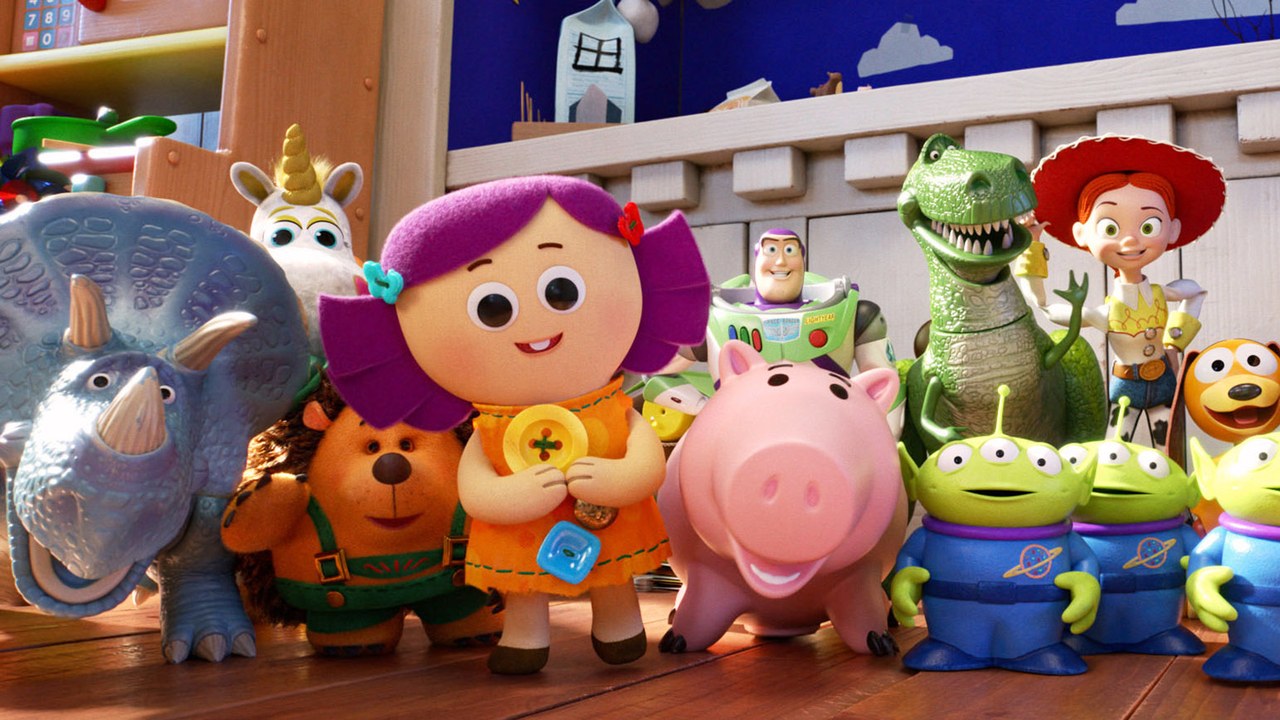
In the very first scene of the film, we have a flashback of the night that Bo Peep is lost. Bo offers Woody a chance to leave with her, and Woody almost goes, but then he hears Andy’s voice. Woody’s fear of being lost, and his devotion to fulfilling his purpose to Andy prevents him from going with Bo. Later in the film, Woody is reunited with Bo Peep who has now been living quite successfully as a kidless toy for some years. Slowly through their reconnection over the course of the film, we find awakened in Woody a longing for a renewed sense of purpose in life. The film makes this poignantly through the dazzling lights of the old chandeliers in the antique shop. In this moment with Bo Beep, Woody is shown to long for something he can’t quite explain. In this moment the seed is planted that there is more to his life and purpose than he had imagined. Woody is left with the question, what does one do when one has fulfilled their seeming purpose in life? Is there more to life than he had once imagined?
This theme of meaning and purpose of life is further drawn out through the antagonist of the film, Gabby Gabby. Gabby Gabby is a very different villain from just about any other film I have seen in a very long time. Gabby Gabby is aggressive in her tactics but she is driven by a real sense of finding meaning in her life, and fulfilling the purpose for which toys exist. Gabby Gabby was defective from the box. She had a broken voice box, and desires Woody’s voice box so that she might finally know the love of a child, and fulfill her purpose as a toy. In a climactic moment when one is expecting the most villianious turn of Gabby Gabby, instead, she gives a passionate and rational plea to Woody to allow her to fulfill her purpose. Woody, then, agrees to give her his voice box. Later, Gabby Gabby is rejected by the granddaughter of the antique shop, Woody helps Gabby Gabby find meaning and purpose with another child.
Much more could be said to trace the themes of purpose and meaning in Toy Story 4, but hopefully this is will encourage its explore this theme in the film themselves, and to see all the different ways it plays out. I truly once again am amazed by Pixar’s ability to tell such powerful and meaningful stories that tap into fundamental questions of what does it mean to be human (and they do this all through toys!). Toy Story 4 taps into a fundamental questions of humankind: why are we here? What is our purpose? Where does our life get meaning from? More surprisingly still, Toy Story 4 presents answers to these questions that strongly align with a Christian world view. In the universe of Toy Story toys are created with an expressed purpose. The Christian faith also teaches that humans are created by God with expressed purposes.
Forky learns his meaning and purpose comes from being made by Bonnie who makes him to be a toy. By being made into a toy, and becoming alive Forky gains a telos. This strangely enough parallels mankind. In the garden we are created and named by God. We are given life. Humans are created in the image of God and this gives us a telos. We are called to be like God. In the New Testament this moves to us becoming like Christ. As the apostle Paul writes, we are to “be conformed to the image of Christ.” In Christ we find our telos to be like him. It is only as we turn our lives over to Christ and we are transformed into the image of Christ that we find true flourishing. In this we find our greatest meaning and purposed.
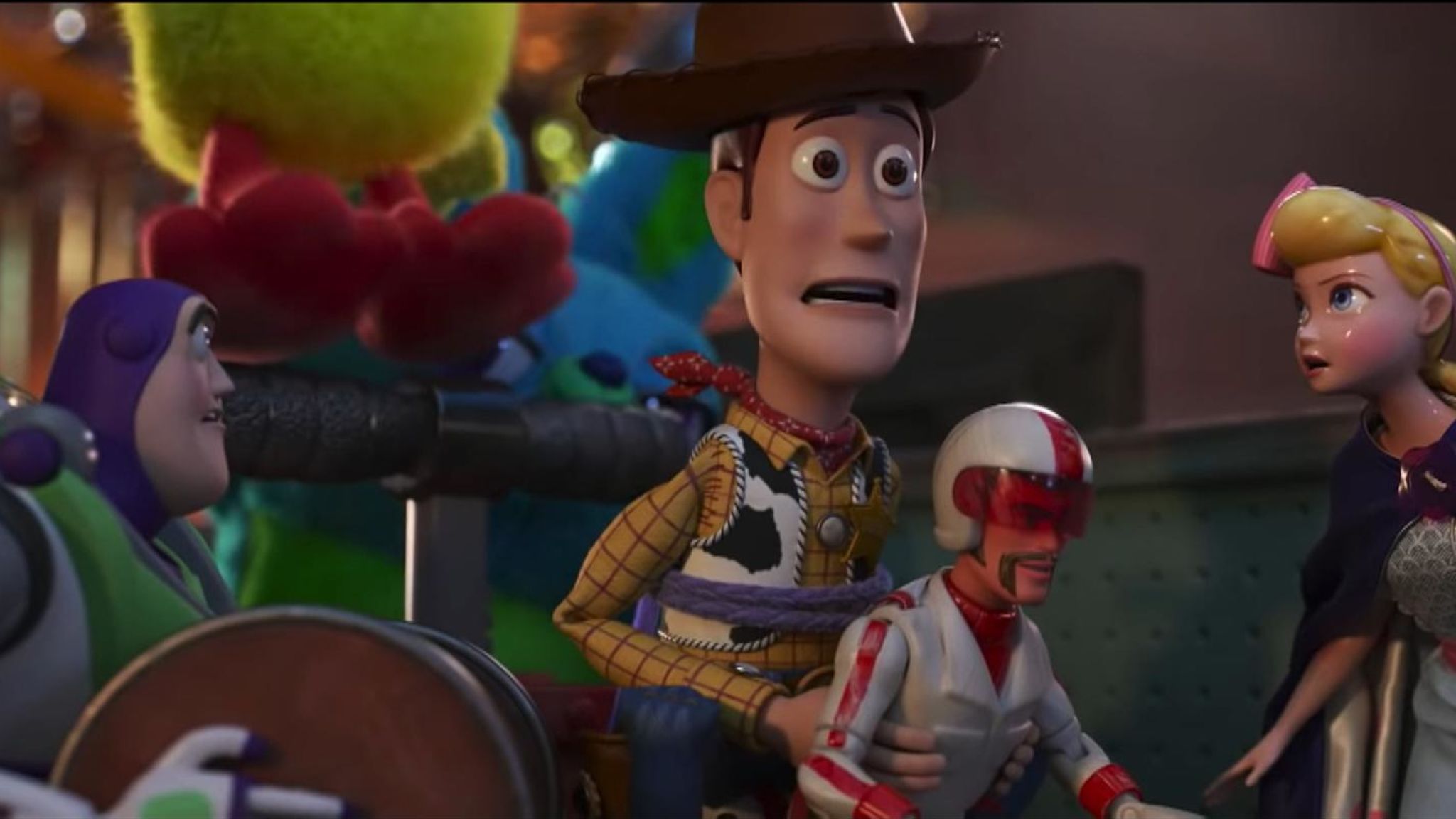
In Gabby Gabby we see another parallel to the Gospel story. Gabby Gabby recognizes that she was made for a particular telos, as well, but she is defective. By the end of the film through the sacrifice of Woody, she is able to experience her purpose and find meaning as the loved toy of a child. We too are made with a particular telos but due to our sin nature we are also defective. We cannot achieve our telos fully because of our fallen nature. But by the sacrifice of Christ, and by the salvation we receive through him we are made a new creation, we are being restored, and now able to achieve our full telos. I do not think the film makers had this parallel in mind when they made this film, but this speaks to the universal longing we have as people to have meaning, to have purpose, to have a telos for our lives. Our world is saturated with a desire for meaning whether we recognize it or not.
At the end of the film we find a Forky who has come to find the meaning and purpose of his life as a toy of Bonnie, Gabby Gabby who finds fulfillment in the arms of a little girl. A Woody who decides to not return with the other toys with Bonnie, but to go explore the world with Bo Peep. Some might be tempted to think that this decision is solely based off of his romantic love for Bo Peep, but I think this reading does injustice to the narrative structure of the movies. The movie has set up that Woody has had a fulfilling life to this point. Woody did all that a toy is meant to do for Andy. He also has secured that Bonnie is going experience a joyful life and has entrusted her to his dear friends. As Buzz Lightyear says, “Bonnie will be fine.”
Furthermore, through the course of the film, Woody has helped other Toys such as Gabby Gabby find fulfillment. In the credits sequence we see Woody and Bo continuing to help other toys find kids to be with. At the end of the film Woody recognizes a deeper sense of calling, meaning, and fulfillment in his life. He has grown and adapted. His meaning is not only found in his connection to his kid, but in his relationship to others. Toy Story 4 suggest that at the end of the film Woody is receiving his reward for his many years of faithful service to fulfilling his life’s purposes. In the end Woody also finds a renewed sense of meaning and purpose to his life. He is a lost toy no more. Toy Story 4 is the story of Woody, but it is also the story of us. We like Woody were lost seeking meaning and purpose, but find our telos, our joy, and meaning in the God who made us for himself.


